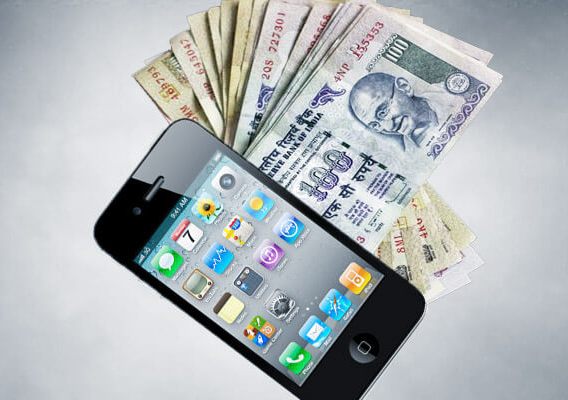The demonetisation in November had many an online seller pull out their hair in despair. However, upon calming down, sellers realised that this might just be the push that prepaid transactions needed to weed out the expensive CoD.
Browntape decided to take a look at the top mobile wallets. We bring to you a comprehensive list of their features and benefits.
1. Paytm
This company is by far the most popular and has the greatest brand recall. Paytm is so common that even vegetable vendors, auto drivers and small mom and pop stores accept payment through this.
Signing up is free, and a vendor need not be Payment Card Industry Data Security Standard (commonly known as PCI) compliant to sign up. It is compatible with all mobile software including Android, ios and Windows. The company doesn’t charge any setting up or maintenance charges now, only a 1.99% commission on all transactions.
A recently introduced feature allows merchants to accept payment through shoppers’ credit or debit cards without a PoS machine. The shopper need not have a Paytm account to use this feature.
2. Mobikwik
Mobikwik is slowly picking up pace. The company has presently waived wallet to bank transfer charges to get more merchants to sign up. Merchants have to pay a commission between 1.5 to 2% of the transaction amount.
Its latest offering is Mobkwik Lite, which needs only 1 MB on the mobile. This is specifically designed to attract small sellers in the non-metros.
3. SBI Buddy
This is a wallet from the State Bank stables. This semi-closed wallet is only for SBI customers (merchants) with a current account. This can be an inconvenience, but considering that it is a bank, the security would be a notch over the others. If you want to sign up for an SBI buddy merchant account, you should hold a debit card or have a Corporate Internet Banking account.
Merchants can authorise another person as a sub-merchant to collect payments on their behalf, and transfer it to the merchant’s buddy account.
Signing up and transferring money to the bank account is free; a fee of 1.5% is charged for other transactions. This is a very new app and is bound to have bugs and issues, but you can consider it if you already have an SBI current account.
4. PhonePe
This company was purchased by Flipkart, and is aiming to take the top spot of mobile wallets. This semi-closed wallet requires users to have a bank account with any of the Unified Payment Interface (UPI) member banks. PhonePe’s USP is the fact that you can immediately transfer funds to your account. If you sell on Flipkart, Myntra or Jabong, you will find this convenient. The company is also working on a merchant-to-merchant money transfer.
5. Airtel Money
Telecom service provider Airtel launched this app in 2012. There is a charge to transfer money to your bank account, but all other transactions are free. Airtel Money comes across as one for customers to pay for their daily needs, and not so much for online sellers. However, you can consider it if you are using any Airtel service and are comfortable with it.
6. Oxigen
This wallet has limited service. It again seems to be more suited for physical stores than etailers. Oxigen tied up with SBI in 2011. The company’s authorised retailers were given an option to carry out banking transactions as SBI representatives. If a retailer signs up for this, she or he is paid a fee for every banking transaction.
7. Freecharge
This is Snapdeal’s baby, and is an option for both online and offline merchants. Customers without a Freecharge account can also pay using their credit or debit cards (as long as the merchant has an account).
Merchants without a bank account can also sign up for a Freecharge account, but there is a Rs. 10,000 limit. Earlier this year, Freecharge introduced FC +, which allows small merchants to be paid through customers with a Freechage account. The company recently tied up with ICICI bank, permitting merchants with the bank’s PoS to accept payments from Freecharge customers.
8. Ola Money
Launched by cab aggregator Ola, this wallet was initially meant to pay for the cab rides. Since mid-2015, even online shopping can be transacted with Ola Money. A Know Your Customer (KYC) verification is required for sellers to transact up to Rs. 1,00,000 per month. Ola charges a service tax and other taxes and charges.
9. PayUmoney
This payment system is designed for online transactions. It charges a transaction discount rate (TDR) of 2% and a 14.5% service tax on the TDR amount. This might be slightly on the expensive side. Online sellers with their own website are provided with a payment gateway. It doesn’t require much technical expertise.
PayUmoney offers to create web stores for online sellers without a website at a 2% TDR on all transactions. It also has PayUbiz for business to business transactions.
We hope that list will give you some clarity on which mobile wallet to partner with. If you have any queries and need a detailed consultation to zero in on a wallet for your business, get in touch with us. We are Browntape, India’s largest ecommerce service provider, and we provide solutions for all your ecommerce needs.










